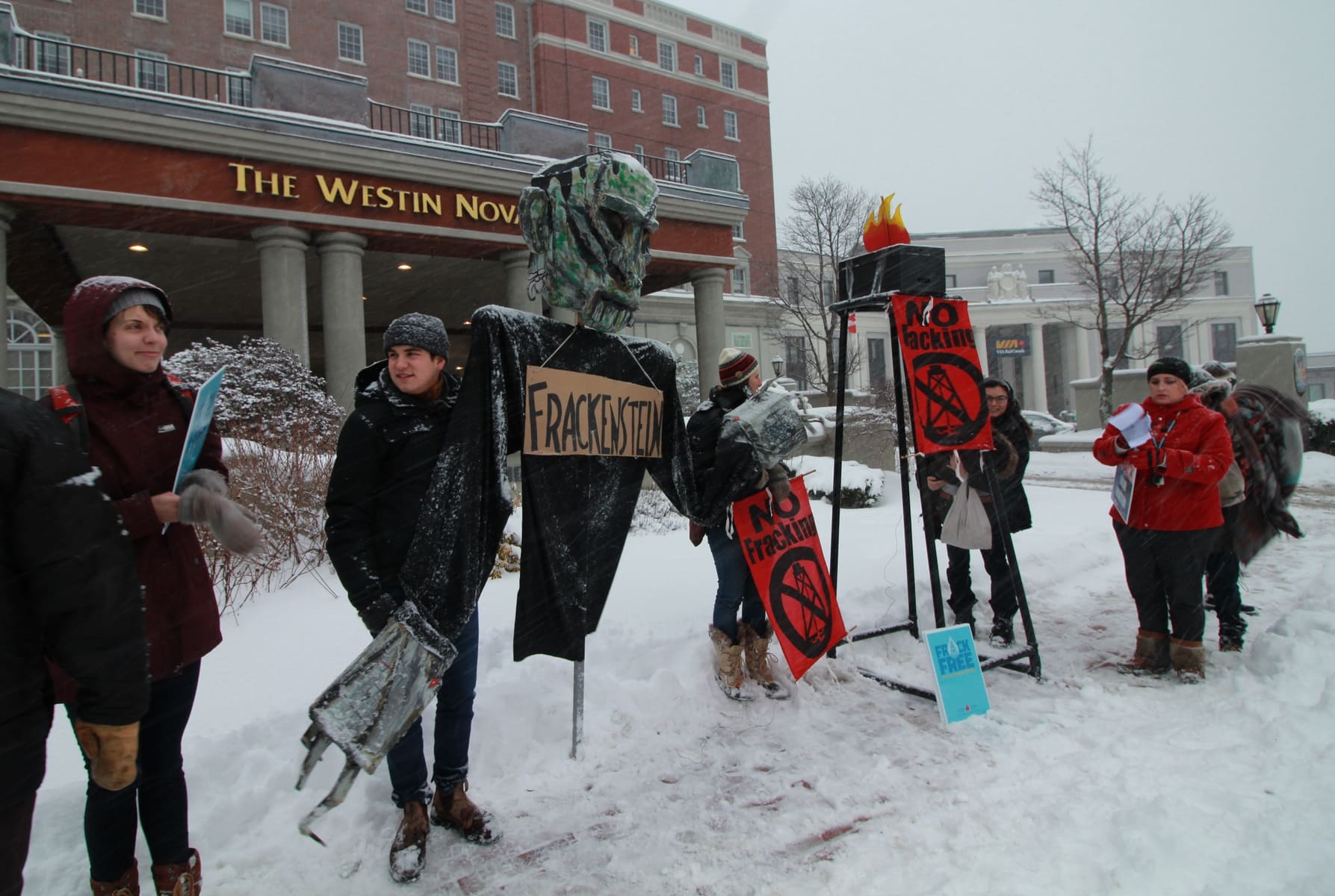K’JIPUKTUK (Halifax) – Anti-fracking activists rallied to defend the ban on fracking in Nova Scotia at the Maritimes Energy Association (MEA) Annual General Meeting this afternoon. Following the province’s release of the Onshore Petroleum Atlas, industry and government representatives have said they are interested in re-opening the discussion on fracking, disregarding the major democratic process that resulted in a fracking ban less than four years ago.

“We banned fracking to protect our water, our farmland, our health, and our climate,” said one of the rally organizers, Robin Tress of the Council of Canadians. “Fracking didn’t get any less risky in the last four years, so why should we even consider opening that door again?”
Nova Scotia’s Energy Minister Geoff MacLellan was the keynote speaker at the meeting, where he spoke at length about the Onshore Petroleum Atlas released last week by the Department of Energy and other fossil fuel projects.
Mi’kmaw activist Rebecca Moore, who is a direct descendant of the signatory to the 1752 Peace and Friendship Treaty, was present for the Minister’s speech.
“There was little talk about renewable energy, and a lot of talk about fracking,” said Moore. “This event, and the minister’s speech, showed me first hand how entitled this industry, and this government is to the theft of our resources and land. It is as if they don’t realize that the fracking, salt cavern gas storage, and mining they are talking about is on unceded and unsurrendered Mi’kmaq territory. Territory for which we as Mi’kmaq Peoples have the inherent Title. Instead of having entire liberty in trade to our best advantage, as is written in our treaties,: we are having our resources stolen and our land poisoned, then being blamed for our own poverty.”
While the AGM was happening inside, people opposed to fracking in Nova Scotia gathered outside at the Westin, handing out information and holding banners, with a model gas flaring stack and a street puppet named ‘Frackenstien’ in the background.
“It is important for us to deliver a clear message to Minister MacLellan and the McNeil government, as well as to industry, that to reopen the debate on fracking would be a major affront to the democratic process through which we earned the ban, and a major setback at a time when we clearly need to be investing in the renewable economy,” says Tress. “The Minister should be lauding the decision to ban fracking instead of apologizing to industry.”
Hydraulic fracturing, or fracking, involves blasting a mixture of water, sand, and chemicals into a wellbore to fracture the surrounding rock and release the trapped hydrocarbons, usually natural gas, coalbed methane or crude oil.



